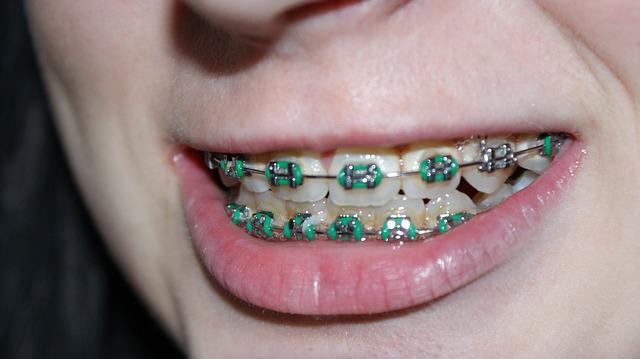We have all seen kids in movies and television shows that have braces. They are often the ones depicted as being “geek” or “nerd”. For many children, this makes the prospect of getting braces, less than desirable. Not to mention the fact that many people fear that having braces will hurt and generally make life difficult. The truth is, anyone has the potential to need braces. Any gender, ethnicity, or age. The incredibly wealthy, the poverty-stricken, and anyone who falls in the wide range between these two has the potential to need braces. There are many misconceptions regarding braces and living with braces. If you or someone in your family has recently been told that they need braces, it is important to take some time to learn what you should expect. While it will take a bit of time to get used to having braces, it is not nearly the way most people expect. What you will find here is a list of tips to help you learn to live with braces as well as some general information. Of course, if you still have questions or concerns, you should contact your orthodontist as soon as possible.
Before going into the best ways to get used to having braces, here is something to think about. It is important to trust your dental professionals. If you do not currently have a dentist, are considering changing dentists, or just want to explore your options, now is the time. Before you commit to a nonemergent dental procedure, take a couple of days and look at your options. If for any reason, you do not agree with or feel comfortable with your dentist, it may be time to move on. Your feelings may be entirely justified or it may simply be that you clash with the dentist’s personality. Either way, it can affect your overall health. You want to go into anything life-altering feeling confident. If you do not feel that, move on. Also, it is important to note here that many people use the terms “dentist” and “orthodontist” synonymously, but they are not the same. These are titles for two separate dental professionals. It requires an orthodontist to install braces which means your usual dentist will not be able to perform the procedure. However, they will be able to recommend a local orthodontist. If you do find that you need a new dentist, consider Dental Studio of Carrollton.
Many people wonder if there is some way to prepare yourself ahead of time for living with braces. Unfortunately, there is not much you can do before you actually have the braces. The only thing you can really do beforehand begins to incorporate your new diet. When you have braces, you should avoid foods that are particularly sticky, hard, or chewy. Your orthodontist will be able to give you a complete list of foods to avoid. Generally, this is given after the braces are in place, but you can request the list in advance if you want to begin making the changes right away. This is really the only change that you can make to help prepare for having braces. Also, in terms of diet, the first few days after your braces have been installed, you will need to stick to soft foods. Common options include mashed potatoes, soup, mac & cheese, bread, yogurt, and jello. Of course, these are not the only foods that you can eat, this is only an example of the type of food to consider. You can ask your orthodontist for a list of foods that are safe if you prefer. Another option is to go to your favorite search engine and simply type in “soft foods” or “soft food diet”. You will be presented with a variety of options. The reason that you will need to stick to soft foods for the first few days is that your teeth will be a bit sensitive while they adjust to moving.
A common misconception about braces is that they are painful. Painful to have installed and painful until they come off. This is not so. In terms of having them put on, you should not feel any pain during this stage. Having the wires and brackets placed on the teeth should not be painful. Afterward, you may feel some discomfort and your gums may feel a bit sore. This is because the braces begin to work as soon as they are installed and your mouth is trying to adjust to the sensation of your teeth moving. This mild soreness and discomfort will not last. If you do feel some soreness, you can take an over-the-counter pain reliever and/or gargle with saltwater. If the pain does not go away after a few days of adjustment, contact your orthodontist. Also, because of the sensitivity, try not to bite down hard for the first few days. This will likely be painful.
If you find that the braces rub a part of your mouth to the point of irritation, your orthodontist can cover the area with orthodontic wax until your mouth becomes used to having the braces. If you continue to have a problem with the brackets rubbing a part of your mouth or if it is painful, make an appointment so that your orthodontist can ensure that everything is alright with the installation of the braces.
Finally, you will likely notice that you produce a bit more saliva directly after having braces installed. This is completely normal and you can rest assured that it will not last long. Within the first 30 minutes of obtaining your new braces, you may feel the need to swallow more than normal. For the next few hours, you will be producing more saliva than usual. This your body’s response to the foreign object that has been placed in your mouth. Within a few hours, the body will accept the new addition and you will stop producing extra saliva. For the first days following the installation, you may catch yourself running your tongue over the braces. This is normal. You will find that after a few weeks you will lose the urge to do this as you become used to having braces.



